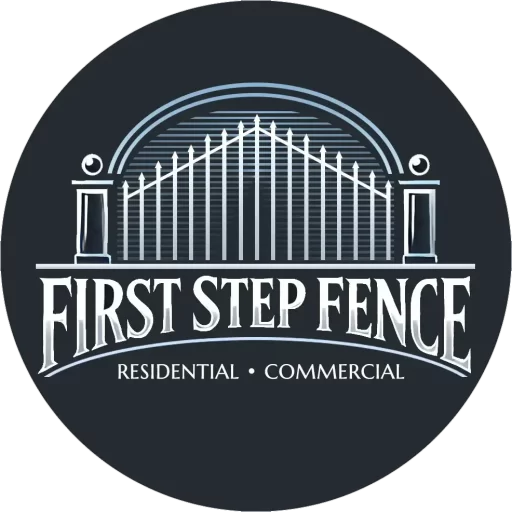Choosing the Right Fence: Wood, Vinyl, Aluminum, or Chain Link?
When it comes to selecting the perfect fence for your property, the choices can feel overwhelming. Wood, vinyl, aluminum, and chain link fences each offer unique benefits, and understanding the strengths of each material can help you make an informed decision. Whether you’re prioritizing aesthetics, durability, or budget, this guide will help you navigate your options.
Why Choosing the Right Fence Matters
Fencing is a financial and safety investment in any residential or commercial property. Choosing the right fence is important for improving curb appeal, privacy, and safety by providing a sense of seclusion from neighbors or busy streets. For families with children or pets, fencing ensures safety by creating a secure boundary for outdoor play. Additionally, a well-constructed fence adds value to your home, contributing to its overall appeal in the real estate market. The material you choose significantly impacts the fence’s functionality, maintenance requirements, and cost over time. Whether you prioritize durability, aesthetics, or affordability, selecting the right material ensures your fence meets your specific needs and stands the test of time. Here’s a closer look at the four most popular options: wood, vinyl, aluminum, and chain link.
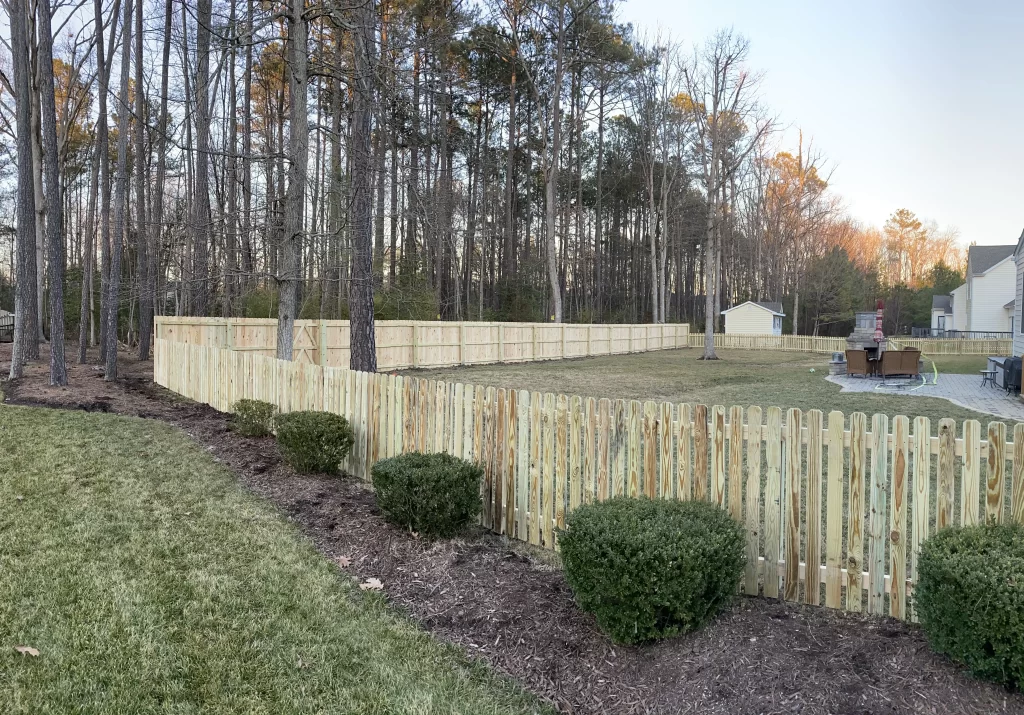
Wood Fencing: Timeless Beauty and Customization
Wood fencing is the ideal choice for homeowners who value a traditional look and are willing to invest time in maintenance to achieve a highly customizable and personalized design. Wood offers unmatched versatility, allowing for various styles such as picket fences, lattice designs, or tall privacy barriers. It can be painted or stained in virtually any color to match your home’s aesthetic or left natural for a rustic charm. Additionally, wood fences can include unique features like decorative caps, scalloped tops, or custom gate designs, making them perfect for those who want a truly one-of-a-kind installation. However, to maintain its beauty and durability, wood requires regular upkeep, including sealing, staining, or painting, as well as periodic repairs for potential damage from weather or pests.
Pros of Wood Fencing
Cons of Wood Fencing
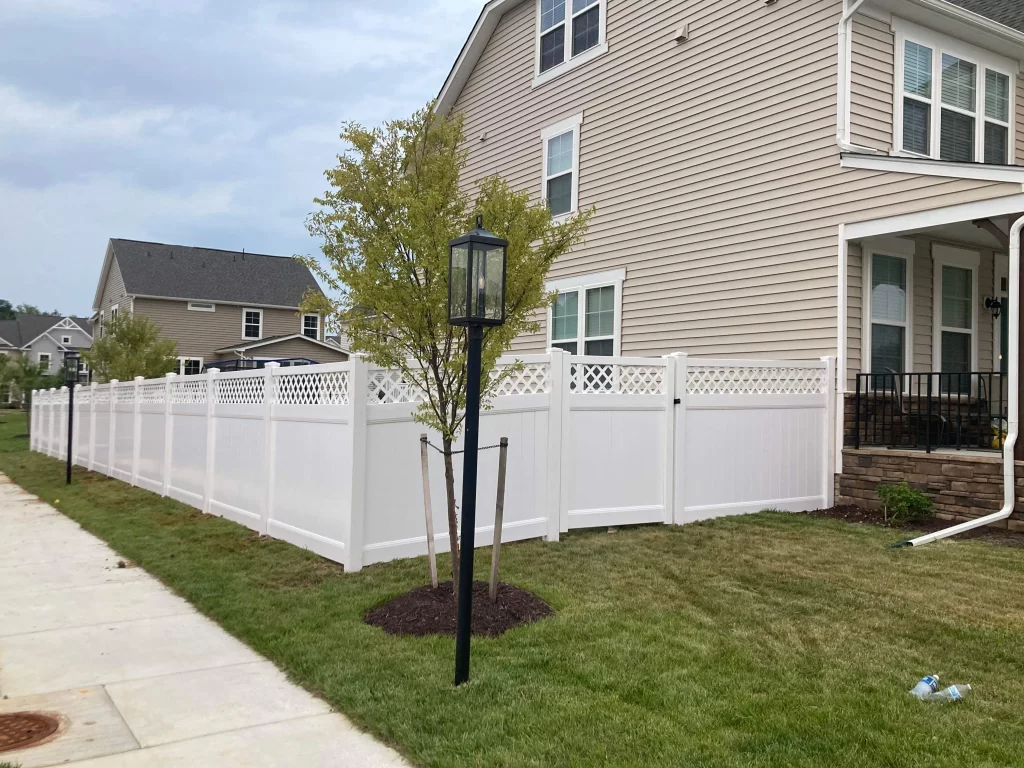
Vinyl Fencing: Low Maintenance and Long-Lasting
Vinyl fencing is a top choice for homeowners looking for a durable, low-maintenance option with a clean, modern appearance. Unlike wood, vinyl does not rot, warp, or suffer from pest damage, making it an excellent long-term investment. Its sleek, smooth surface is easy to clean with just a hose or soapy water, ensuring it looks new for years. Vinyl is available in a wide range of colors and styles, including options that mimic the appearance of wood, allowing you to enjoy a classic look without the associated maintenance. This material also withstands harsh weather conditions, from extreme heat to heavy rains, making it ideal for homeowners in areas with unpredictable climates. Though vinyl fences may have a higher upfront cost, their durability and low upkeep requirements make them cost-effective in the long run.
Pros of Vinyl Fencing
Cons of Vinyl Fencing
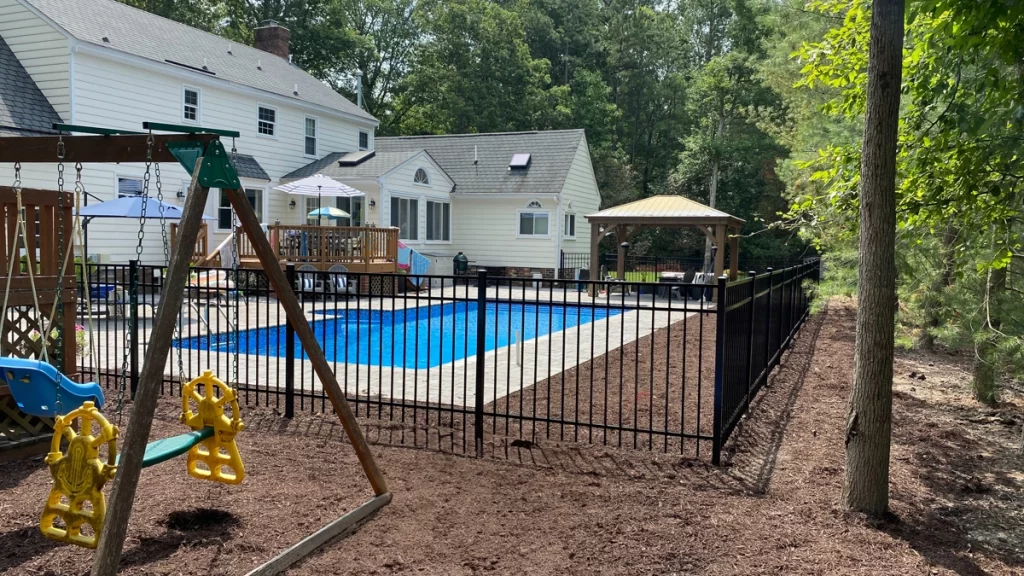
Aluminum Fencing: Elegant and Secure
Aluminum fencing is perfect for homeowners seeking a decorative, long-lasting fence to secure property lines or pool areas without compromising visibility. Its lightweight yet durable design adds elegance and sophistication to any property, making it a favorite for gardens, front yards, and pool enclosures. Aluminum fences are highly resistant to rust, corrosion, and weathering, requiring minimal maintenance over their lifetime. They can be customized with ornamental details such as finials or scrolls, adding a stylish touch to the structure. While aluminum fences do not provide privacy due to their open picket designs, they excel in securing boundaries while preserving scenic views. This makes them particularly suitable for properties with landscaped gardens, waterfront views, or aesthetic focal points.
Pros of Aluminum Fencing
Cons of Aluminum Fencing

Chain Link Fencing: Practical and Affordable
Chain link fencing is an excellent option for cost-conscious homeowners needing secure enclosures for pets, kids, or larger properties. It is one of the most affordable fencing materials, offering durability and functionality without a hefty price tag. Chain link fences are commonly used for practical purposes, such as enclosing backyards, playgrounds, or commercial spaces. They provide a secure boundary while maintaining visibility, allowing you to keep an eye on pets or children at play. For added privacy, you can customize chain link fences with vinyl-coated options or privacy slats in various colors to enhance their appearance and functionality. Additionally, they are easy to install and require little maintenance, making them an ideal solution for homeowners looking for a quick and reliable fencing option.
Pros of Chain Link Fencing
Cons of Chain Link Fencing
How to Decide on the Best Fence for You
When choosing a fence, consider the following factors:
- Purpose: Is your priority privacy, security, or aesthetics?
- Budget: Are you looking for a cost-effective solution or a long-term investment?
- Maintenance: Do you prefer low-maintenance materials, or are you willing to invest time in upkeep?
- Property Style: Match the fence’s design and material to your home’s architecture.
Why Choose First Step Fence?
At First Step Fence, we specialize in helping homeowners choose and install the perfect fence for their needs. Whether you opt for the timeless charm of wood, the low-maintenance durability of vinyl, the sleek design of aluminum, or the practicality of chain link, our team is here to guide you every step of the way.
Request a No-Obligation Fence Quote
Fill out the form below and our team will respond same business-day to provide you a free quote.
Need to Finance Your Project?
The First Step Difference
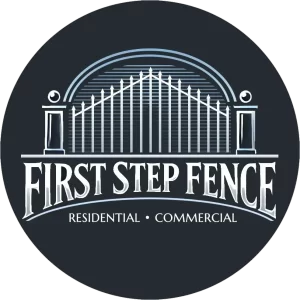
First Step Fence, LLC
Justin Kent | Owner
Justin Kent is the owner of First Step Fence, the premier provider of residential and commercial fencing in Richmond, VA. Justin writes about topics that assist homeowner’s and businesses in maintaining the visual appeal and extending the lifespan of their decks and fences. You can call Justin at (804) 902-2411 or use our contact form to send an email.
